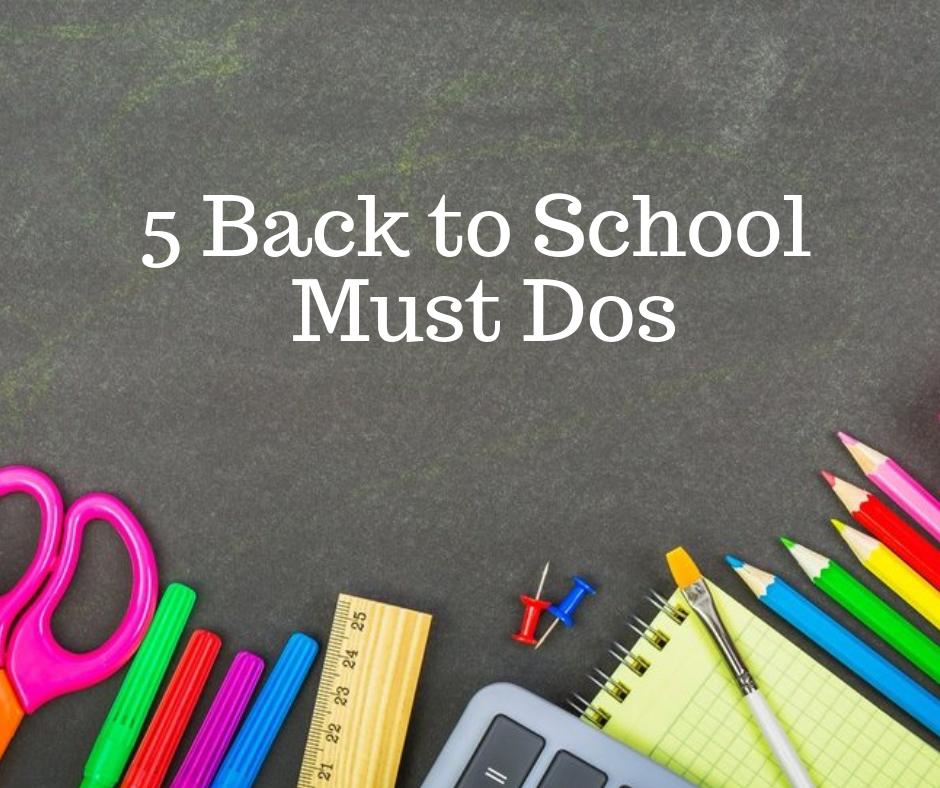It’s easy to get lost in the haze of the new school year. No one is perfect, but starting with clear goals can get you on the right path for a smooth year.
- Schedule academics first. Often, parents wait until all the various activity schedules come out before broaching this topic. Actually, expectations for how much time and effort is put into school work should be set BEFORE any other activities are scheduled, to make sure that all activities are viewed in light of the family goals, and modified as necessary. If education is the top priority, then the routines will be easier to manage once that expectation is clearly set.
- Set boundaries for screen time. Between computer & ipad school assignments, video games, phones, etc., the issue of balancing screen time is a topic every family has to face. The sooner you set limits, the easier the school year will be. Often, schools require part or all of homework to be completed online. Make sure that after homework time, there is a “screen break” of at least 30 minutes where your child can do non-screen activities. His/her eyes and brain will thank you! Set boundaries for how much screen time for entertainment purposes is okay on a typical weeknight and a typical weekend. There are many recent scientific studies that talk about how critical boundaries for screen time are in helping your child learn and stay healthy.
- Assign two “Get Out of Jail Free” cards. If you have a student who is extremely disorganized, you will have trouble keeping track of the numerous times he/she tells you that an assignment was forgotten, a book left at school, etc. From an early age it helps students learn responsibility and organization if parents aren’t so quick to rescue their forgetful child. Give your child two “passes” that they can utilize through the quarter, semester, or school year for those most critical situations, like bringing a long term project into school that was left by accident on the dining room table… If your child understands they have some help, but not too much, they will better avoid tricky situations and learn the consequences of poor planning.
- Establish communication with your child’s teacher(s). Let the teacher know right away that you care and want open communication. Don’t be bashful about asking questions about what’s going on with your child in school. Ignorance is not bliss, and no parent likes the surprise ending of “you child’s work is unsatisfactory” or worse yet, “your child failed.” Teachers are often very busy managing many different students, books, expectations, etc. Reaching out can make the teacher’s job easier and prevents things from slipping through the cracks.
- Don’t wait to get help. If you notice your child’s skills, motivation, or confidence dropping, seek help immediately. The longer problems persist, the more damage is done, and the more intense the recovery. A parent’s intuition is often right on target, and if the teacher isn’t picking up the same signals, it doesn’t lessen your concerns. You know your child best, so seek out help if you feel something isn’t quite right.

